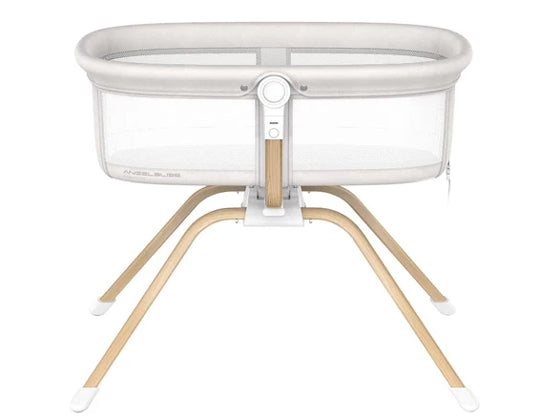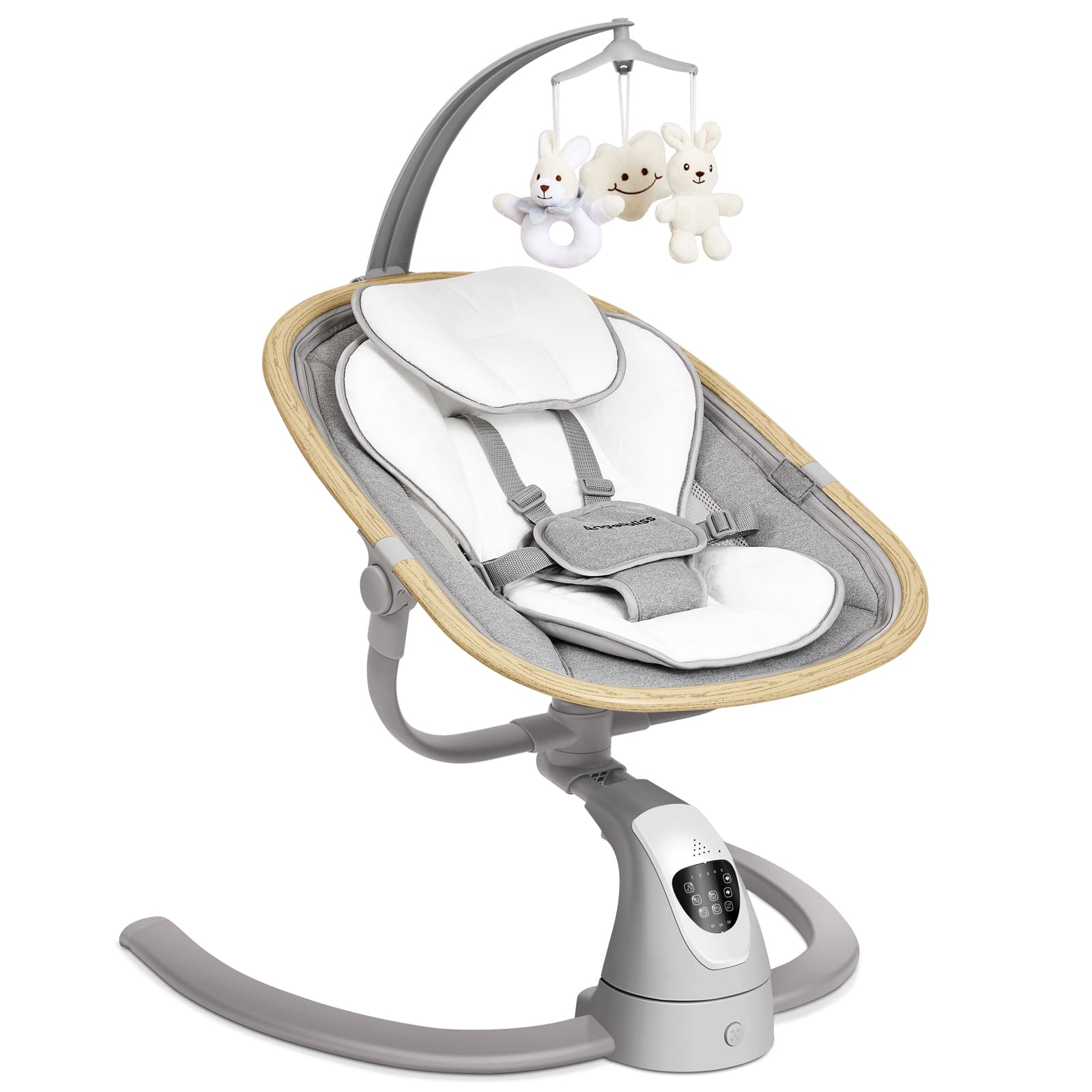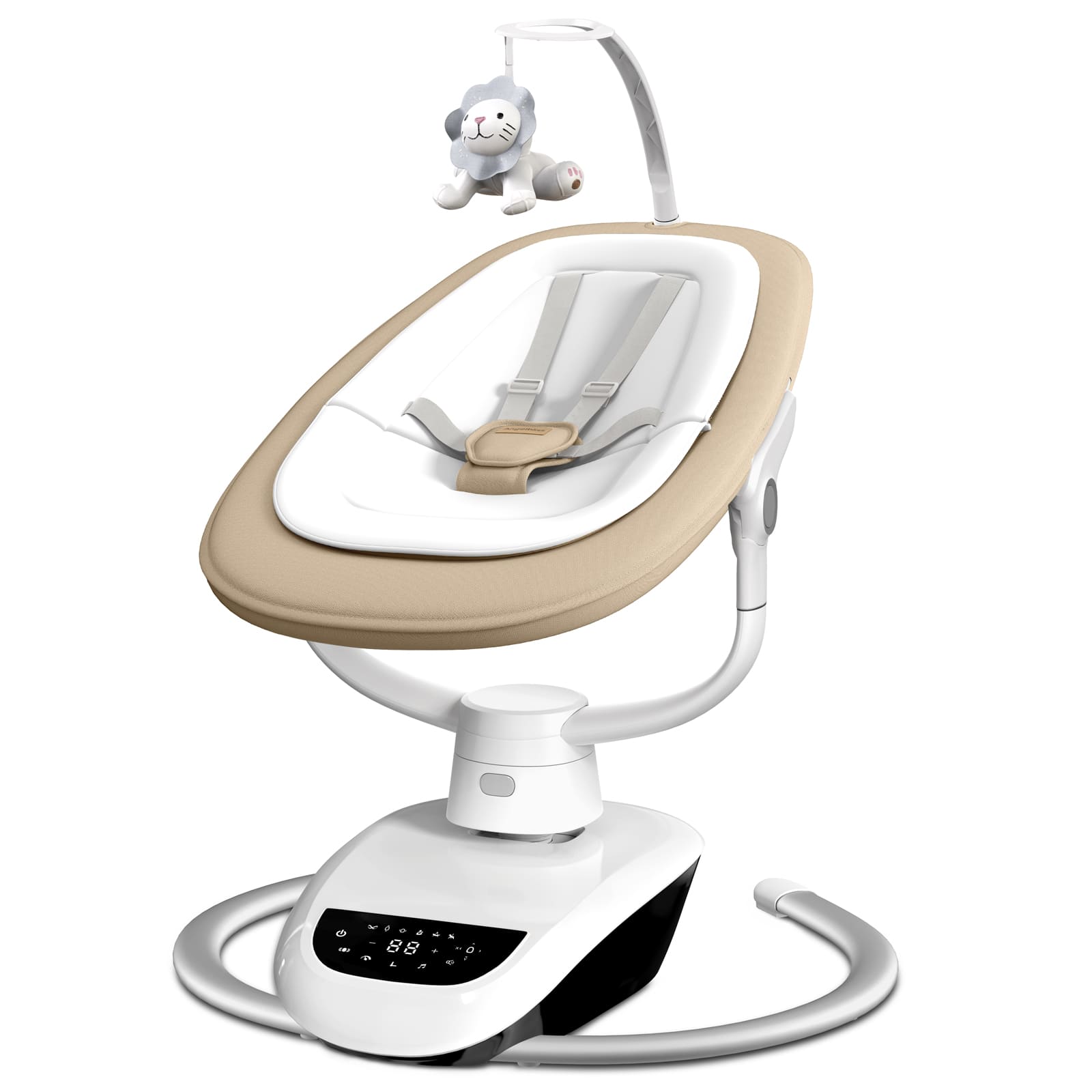There's nothing quite like the sound of a sleeping baby... until they start grunting, straining, and making all sorts of unexpected noises! Hearing your newborn grunting in sleep can instantly send a new parent into a worried frenzy. It's confusing – they sound distressed but are seemingly asleep. Is this normal? Are they in pain? Do they need me?
1. The "Grunty Newborn": Why Most Noises Are Perfectly Normal.
Before you rush to intervene, it's reassuring to know that the vast majority of sounds your newborn makes during sleep are simply part of their fascinating development. Here's why most nighttime grunts are perfectly normal:
Immature Digestive System
Newborns are learning to coordinate bowel movements. They haven't yet mastered the adult skill of relaxing their pelvic floor while simultaneously pushing. So, they grunt and strain as they push stool or pass gas, even during sleep. This often leads to what parents playfully call "grunt-straining-poop" sessions, which are more about learning coordination than actual distress.
Active Sleep (REM Cycle)
Active sleep, sometimes referred to as REM sleep, is a lighter stage of sleep that babies spend a large amount of time in. During this time, babies can twitch, squirm, make facial expressions, and vocalize – grunting, whimpering, and sighing are all common. Their tiny brains are incredibly busy developing and processing the day's experiences. These noises are not signs of distress but normal sleep transitions as their bodies and minds develop.
Immature Respiratory System
A newborn's respiratory system is still developing. Their tiny, narrow nasal passages and undeveloped airways mean they often breathe quite noisily. Snorts, grunts, gurgles, and even little whistles are common, especially if they have a bit of congestion from milk residue or dry air.
Learning to Breathe
Newborns often exhibit irregular breathing patterns known as periodic breathing. This involves short pauses in breathing followed by rapid breaths, which can sound like grunting or irregular gasps as they learn to regulate their breathing. This typically resolves as their respiratory system matures.

2. Normal Grunting vs. Concerning Sounds: How to Tell the Difference.
Distinguishing between typical newborn noises and sounds that warrant concern is crucial for any parent. Your observation skills are your best tool.
What Normal Grunting Looks Like (and Sounds Like)
You'll typically notice occasional, brief grunts or strains. Your baby generally appears comfortable, showing no other signs of distress like changes in skin color or agitated body movements. They might squirm a bit, but then usually resettle on their own. This normal grunting is often associated with bowel movements or gas passing.
What to Watch Out For (Potential Red Flags)
These signs, especially when accompanied by grunting, indicate a need for immediate attention:
Persistent, Loud, or Forceful Grunting: If your baby's grunting sounds like a constant struggle with every breath, or is unusually loud and forceful.
Nostril Flaring or Head Bobbing: These are clear physical signs of increased respiratory effort, as your baby's body works harder to get air.
Rib Retractions: A major sign that your kid is having trouble breathing is if you notice the skin pushing in around their neck or ribcage with every breath.
Cyanosis: A bluish tinge around the mouth or nose, or in the nail beds, indicating insufficient oxygen.
Fever or Lethargy: General signs of illness that require immediate medical attention.
Difficulty Feeding or Unconsolable Crying: If your baby is grunting and struggling to feed, or their crying is persistent and cannot be soothed, this warrants a call to the pediatrician.
3. Practical Tips for Soothing Your Grunting Newborn (and Your Nerves!).
Most of the time, reassurance is key. However, some simple interventions can help both your baby and your peace of mind.
"Wait and See" Approach
Often, your baby will resettle on their own after a brief bout of grunting. Avoid immediate intervention unless the grunting escalates or you observe any red flags. A few moments of observation can help you distinguish between normal sleep noises and genuine distress.
Optimize Sleep Environment
Make sure your infant has a cool, calm, and dark sleeping area. Above all, make sure that their bassinet or crib has a solid, level, bare sleeping surface that is devoid of any loose blankets, bumpers, cushions, or toys.
Leg exercises and a light stomach massage
If you suspect gas is contributing to the grunting, gently massaging your baby's tummy in a clockwise direction or performing "bicycle" leg exercises can help release trapped air.
Burping Techniques
Ensure thorough burping after every feed to minimize swallowed air that can lead to trapped gas and discomfort during sleep.
Nasal Aspirator & Saline
If congestion seems to be contributing to noisy breathing, gentle saline drops followed by a nasal aspirator can safely clear tiny nasal passages, making breathing easier.
Swaddling (for young newborns)
For young newborns, a secure swaddle can provide comfort and security, mimicking the snugness of the womb. However, remember to stop swaddling when your baby shows any signs of rolling.
Key Takeaways for Supporting Your Newborn's Sleep:
Understanding your newborn's unique sleep sounds and patterns is a vital part of early parenthood. While most grunting is a normal part of their development, knowing when and how to respond can make all the difference for a peaceful night.
Here are quick links to additional resources to further support you:
Creating a Calming Bedtime Routine: The secret is to be consistent! For detailed guidance on establishing a predictable routine that signals sleep time, fostering better sleep for your little one, visit our comprehensive guide: Is Your Baby Crying in Sleep? Unpacking Common Reasons and Tips for Parents.
Optimizing Their Sleep Sanctuary: A cold, quiet, dark, and safe space is essential. Learn more about setting up the ideal, firm, flat, bare sleep space in your baby's bassinet or crib, free from hazards: Choosing the Safest Bassinet: Expert Tips & Essential Safety Standards.
Knowing When to Call the Pediatrician: While most grunting is benign, watch for unsettling symptoms beyond typical noises. For specific signs of illness, unresolvable crying, or significant changes in behavior that warrant professional medical advice, always consult your trusted pediatrician. You know your baby best!
Understanding Your Baby's Language at Night.
It can be frightening to hear your baby grunting while they sleep, yet these nocturnal vocalizations are frequently typical developmental phenomena. However, some cries do signal discomfort or a need for attention. Knowing the subtleties enables you to react intelligently, strike a balance between consoling and encouraging self-soothing, and make wise choices.













